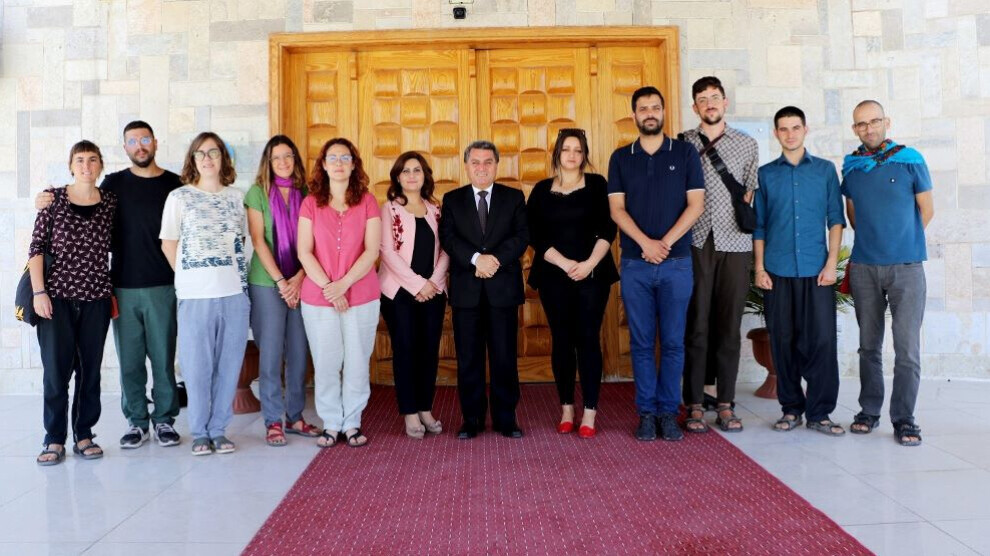Delegation from Catalonia visits northeastern Syria
A delegation from Catalonia visits the autonomous region of northern and eastern Syria to learn about the situation on the ground and evaluate support options.
A delegation from Catalonia visits the autonomous region of northern and eastern Syria to learn about the situation on the ground and evaluate support options.

A delegation from Catalonia has met in Qamishlo with the heads of the Foreign Affairs Department of the Autonomous Administration of North and East Syria. Members of the delegation are deputies of the Catalan Parliament and the Barcelona City Council.
The joint meeting discussed the system of self-government and the political and economic difficulties in the northeastern Syrian autonomous region. Both sides raised their views on the current situation in Syria, and the meeting also focused on improving relations between Catalonia and northeastern Syria.
Abdulkarim Omar, who heads the foreign affairs department of the Autonomous Administration together with Daniya Remedan, said in conversation with his guests, "Our diplomatic work is based on relations with civil society institutions, trade unions, grassroots, women's and youth movements, intellectuals and academic circles. We are very pleased with your visit."
Other topics of discussion were the human rights violations and Turkification in the occupied territories of Afrin, Serêkaniyê and Girê Spî, the violent change in the demographic structure in northern Syria and the water shortage caused by Turkey's dam policy. Abdulkarim Omar stressed that a humanitarian crisis is looming, especially in Hesekê, because Turkey is using water as a weapon of war. He also pointed out that the Til Koçer (Yarubiyah) border crossing must be opened for humanitarian aid deliveries. Until 2020, the Iraqi-Syrian border crossing allowed United Nations aid supplies to reach the northeast of the country independently of the Syrian regime in Damascus. Since January 2020, this border crossing has been closed due to a veto by Russia and China in the UN Security Council.
The guests from Catalonia said that during their visit they wanted to learn about the political and social situation and the existing difficulties in northeastern Syria in order to evaluate possibilities of support.